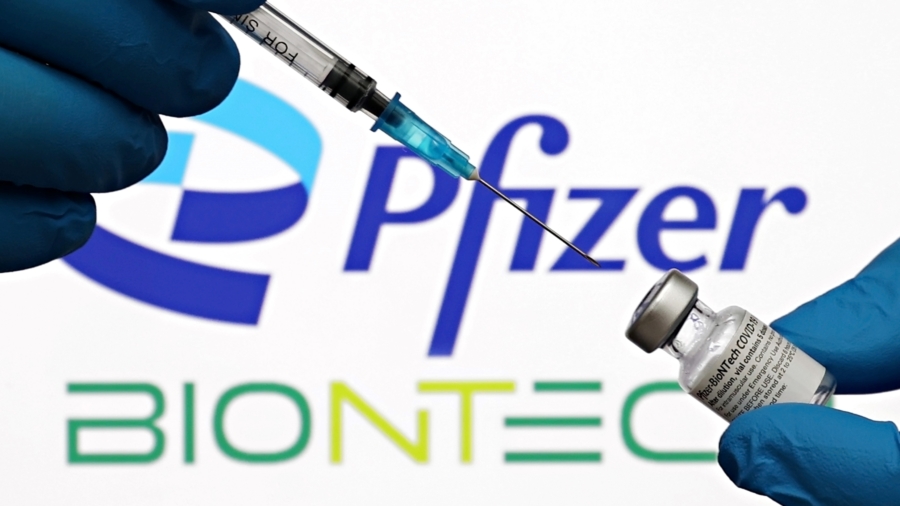Vaccine-maker Pfizer Inc., in a filing to the U.S. Securities Exchange Commission, wrote that its COVID-19 vaccine revenue is down 70 percent in 2023.
“Declines largely driven by lower contracted deliveries and demand in international markets and lower U.S. government contracted deliveries, due to transition to new variant vaccines in most markets and the transition to traditional U.S. commercial market sales which began in September 2023,” the company wrote in the filing, which was drafted last week.
Global revenues for the vaccine hit $11.2 billion for last year, said the filing. However, that’s a far cry from 2022’s numbers when the company’s vaccine revenue stood at $37 billion for the year, or down about 70 percent.
Pfizer earned record revenue in 2021 and 2022, topping $100 billion last year, after developing its vaccine with German partner BioNTech SE, and the antiviral treatment Paxlovid on its own.
Last year, the company, on multiple occasions, slashed its revenue estimate for 2023 due to a drop in demand for the vaccine and other COVID-19 products. At one point, the firm slashed estimates by $9 billion.
Pfizer CEO Albert Boura said in a statement at the time: “As we gain additional clarity around vaccination and treatment rates for COVID, we will be better able to estimate the appropriate level of supply to meet demand.”
Later that year, the firm announced layoffs, in part due to the lower-than-anticipated profits.
“The program is expected to deliver targeted savings of at least $3.5 billion, of which $1 billion is expected to be realized in 2023 and an additional $2.5 billion is expected to be realized in 2024,” Pfizer said in an October news release. “The one-time costs to achieve the savings associated with the new cost realignment program are expected to be approximately $3 billion, of which the majority is expected to be cash. These costs will primarily include severance and implementation costs.”
The filing comes as U.S. Centers of Disease Control and Prevention (CDC) said this week it recommends that older adults should receive another updated COVID-19 booster vaccine dose, which are made by Pfizer and Moderna.
Notably, the agency did not recommend the booster shot for any other age demographic. Previously, the it had recommended booster shots and initial vaccine series for everyone aged six months and older.
But under the latest recommendations, adults aged 65 and older are advised to get another dose of any updated COVID-19 vaccine, which became available in September, at least four months after the previous one. It came after the agency’s advisory committee voted to endorse the guidance, which was then backed by CDC Director Mandy Cohen this week.
“Today’s recommendation allows older adults to receive an additional dose of this season’s COVID-19 vaccine to provide added protection,” the CDC director said in a news release released by the agency. “Most COVID-19 deaths and hospitalizations last year were among people 65 years and older. An additional vaccine dose can provide added protection that may have decreased over time for those at highest risk.”
Late last year, the CDC issued an alert that Americans’ uptake of the latest COVID-19 boosters as well as RSV and influenza vaccines is lower than previous year.
“Low vaccination rates, coupled with ongoing increases in national and international respiratory disease activity caused by multiple pathogens, including influenza viruses, SARS-CoV-2 (the virus that causes COVID-19), and RSV, could lead to more severe disease and increased healthcare capacity strain in the coming weeks,” the agency wrote in a health advisory right before Christmas 2023.
Around 17 percent of adults and about 8 percent percent children getting the latest shot, according to the CDC data at the time. That includes about 36 percent of elderly adults.
“We are seeing too few folks get vaccinated this season,” Dr. Cohen said late last year. “The voice of the physician matters so much in whether or not folks decide to get vaccinated.”
Reuters contributed to this report.
From The Epoch Times

